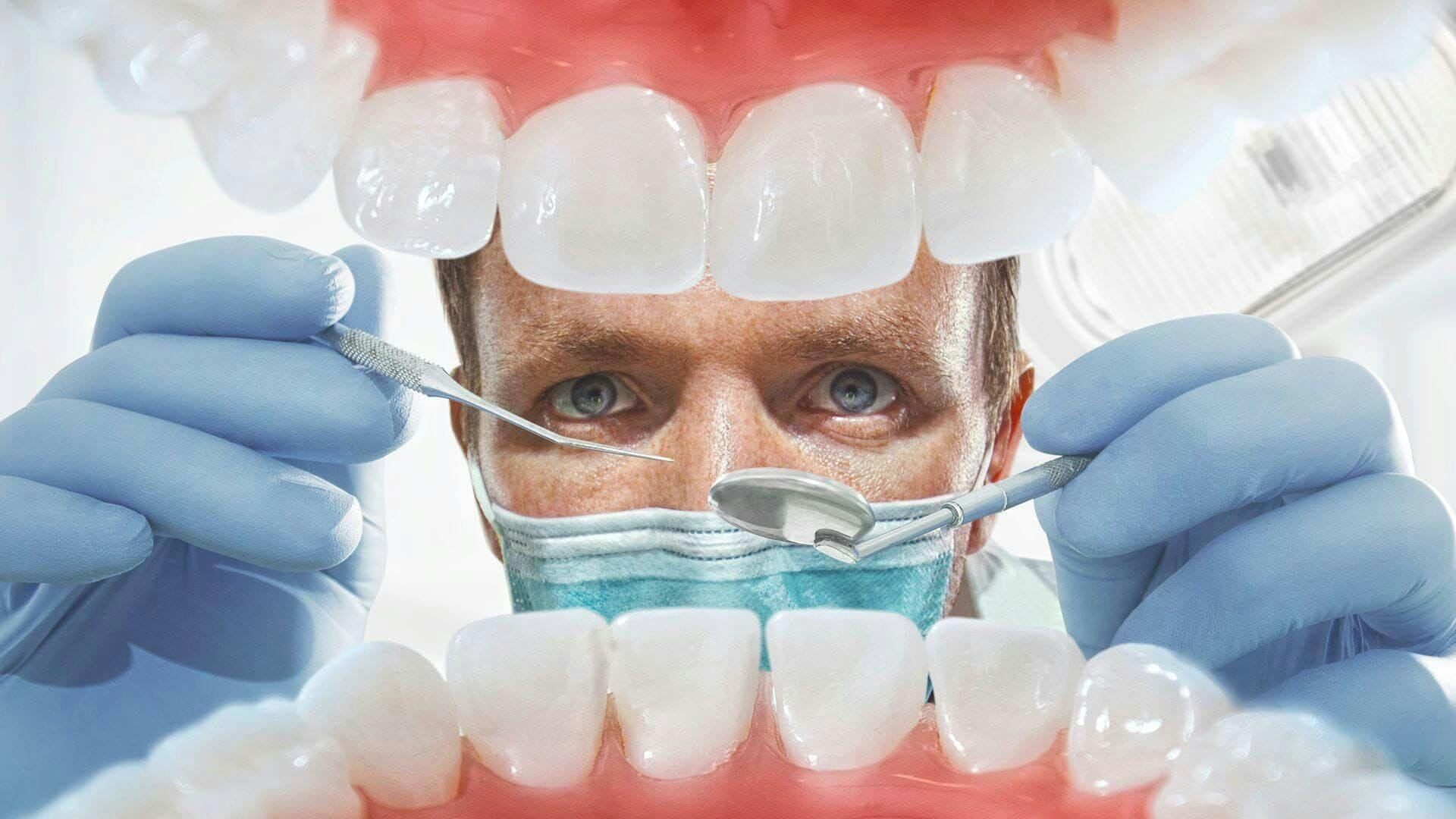An Overview to Usual Dental Conditions That Need a Dental professional's Care
Toothaches, for instance, can be symptomatic of serious issues such as dental caries, fractured teeth, or abscesses, each needing particular treatments like dental fillings or root canals. Influenced wisdom teeth and jaw disorders can introduce substantial discomfort and complications.
Toothaches
Toothaches are a common oral condition that can vary from moderate pain to severe discomfort, frequently showing an underlying problem that requires expert focus. This pain can originate from a variety of resources, including tooth decays, broken or fractured teeth, and oral abscesses. Each of these problems poses considerable threats if left without treatment, possibly leading to a lot more extreme complications.
Oral cavities, additionally referred to as caries, are created by the accumulation of plaque that erodes tooth enamel, causing openings or pits in the affected teeth (eugene dentist). Split or fractured teeth, on the other hand, might arise from trauma, grinding, or attacking into hard objects. These architectural problems can expose the sensitive inner layers of the tooth, causing pain and enhancing the threat of infection. Abscesses hurt infections at the root of a tooth or between a tooth and the gum, commonly resulting from serious degeneration or untreated tooth cavities.
Reliable therapy of toothaches involves addressing the source. This may consist of dental fillings for dental caries, crowns for fractured teeth, or origin canals and anti-biotics for abscesses. Early intervention by a dental expert can stop more damage and minimize pain, guaranteeing optimal oral health.
Gum Tissue Condition
Gum tissue illness, a common yet commonly ignored dental problem, shows up with inflammation and infection of the gums and supporting tissues. This condition primarily takes place in 2 phases: gingivitis and periodontitis. Gingivitis, the milder type, presents with signs and symptoms such as red, puffy periodontals that may hemorrhage conveniently during brushing or flossing. If left untreated, gingivitis can proceed to periodontitis, an extra serious type characterized by the destruction of the sustaining bone and connective tissue, ultimately resulting in tooth loss.
The key root cause of gum illness is bacterial plaque, a sticky, anemic movie that frequently creates on teeth. Poor dental hygiene, cigarette smoking, genetic predisposition, and certain clinical conditions, such as diabetic issues, can intensify the risk of creating gum tissue illness. Regular oral examinations are crucial for very early detection and management of this problem.
Therapy for gum condition varies from professional oral cleansing and scaling to advanced treatments like root planing and periodontal surgical treatment, depending on the seriousness. Preserving great dental health techniques, consisting of cleaning two times daily, flossing, and using an antibacterial mouthwash, can dramatically reduce the risk of gum illness and promote healthier periodontals.
Cavities
Tooth cavities, likewise understood as tooth decays, are an usual oral problem defined by the damage of tooth enamel because of acid-producing germs in the mouth. These germs prosper on sugars and starches from food and beverages, producing acids that gradually deteriorate the enamel, bring about dental caries development.
Early-stage tooth cavities may not show symptoms, but as they progress, they can create tooth pain, sensitivity to cool or warm, visible holes or pits in the teeth, and discoloration. If left untreated, dental caries can pass through deeper layers of the tooth, potentially resulting in extreme discomfort, infection, and even tooth loss.
Preventing cavities entails a combination of good oral health practices and dietary practices. Normal cleaning with fluoride toothpaste, flossing, and routine oral exams are crucial. Dental professionals might also suggest extra safety nets, such as fluoride therapies and oral sealers, to safeguard teeth from degeneration.
Therapy for dental caries depends upon their seriousness. Minor cavities can be addressed with oral fillings, which recover the tooth's framework. If the decay has gotten to the tooth's pulp, much more sophisticated cases might call for crowns or even root canal treatment. Prompt intervention by a dental practitioner is crucial to avoid complications and preserve total dental health.

Impacted Knowledge Teeth
Influenced wisdom teeth are a widespread dental problem that takes place when the 3rd molars, typically described as knowledge teeth, fall short to fully emerge or line up effectively within the mouth. This problem often results from insufficient space in the jaw or an unusual development angle of the teeth. Affected knowledge teeth can bring about a variety of issues, consisting of infection, discomfort, and damages to surrounding teeth.
When knowledge teeth become influenced, they are typically partly emerged or stay completely underneath the periodontal line. This partial eruption can produce a pathway for germs to enter the gums, leading to infections that manifest as swelling, pain, and also high temperature. In addition, influenced knowledge teeth can apply stress on bordering teeth, possibly triggering crowding or shifting.
An extensive oral examination, normally entailing X-rays, is necessary for detecting influenced wisdom teeth. Therapy usually includes surgical removal, carried out by an oral doctor. The treatment aims to alleviate pain and prevent additional problems, such as cysts or damages to surrounding bone frameworks. Post-operative treatment is resource vital to guarantee correct recovery and minimize the danger of infection. Regular dental check-ups are suggested to check the problem and preserve dental wellness.
Jaw Disorders
Jaw conditions, jointly understood as temporomandibular joint (TMJ) problems, encompass a series of problems that influence the jaw joint and surrounding muscle mass. These conditions can manifest with symptoms such as pain or tenderness in the jaw, problem chewing, a standing out or clicking noise when shutting the mouth or opening, and also chronic migraines. TMJ conditions can emerge from various factors, including arthritis, jaw injury, or habitual habits like teeth grinding or jaw clenching.
Diagnosis of TMJ disorders generally entails a detailed examination by a dental practitioner, including a physical exam of the jaw, oral X-rays, and occasionally progressed imaging techniques like MRI or CT checks to analyze the joint's problem. Non-invasive methods such as physical treatment, oral splints, and drugs aimed at minimizing inflammation and pain are often first-line therapies.
Early intervention by an oral professional is important to avoid the development of TMJ problems and to preserve total oral health and wellness. Patients experiencing relentless jaw pain or disorder should look for prompt examination and treatment.
Conclusion
Keeping dental health requires prompt professional like attend to usual dental conditions. Toothaches usually indicate underlying problems such as dental caries, cracked teeth, or abscesses, requiring timely intervention. Periodontal condition, from gingivitis to periodontitis, needs normal oral exams and cleanings to avoid progression. Affected wisdom teeth and jaw conditions likewise need expert interest to relieve discomfort and prevent further complications. Regular oral visits are important for detecting and dealing with these problems, making certain total oral wellness and read the full info here wellness.
Dental cavities, also known as decays, are created by the accumulation of plaque that wears down tooth enamel, leading to holes or pits in the influenced teeth. Abscesses are excruciating infections at the origin of a tooth or between the periodontal and a tooth, generally resulting from serious decay or untreated dental caries.

Furthermore, influenced wisdom teeth can exert pressure on bordering teeth, possibly causing crowding or moving.